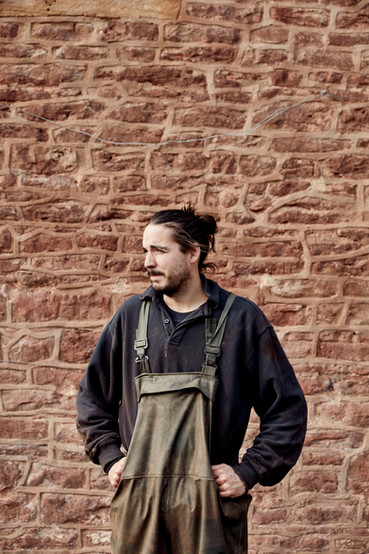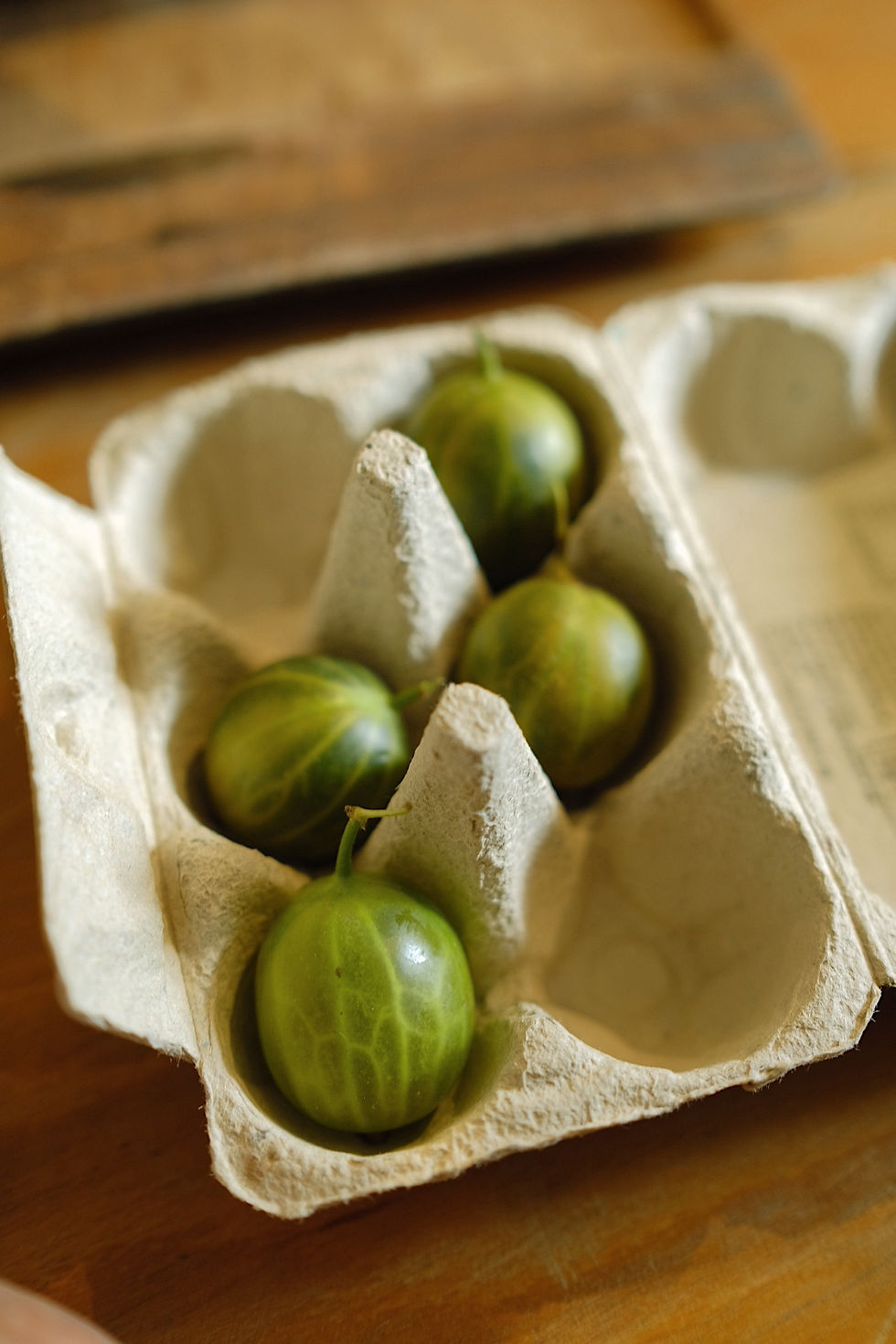The Sustainable Farmer
- Angus D. Birditt
- Aug 19, 2021
- 4 min read
Meet Fred Price, a sustainable farmer from rural Somerset, who has been farming at Gothelney Farm for over ten years. Over that decade, Fred has revived the farm from intensive to extensive farming practices, employing sustainable methods to increase diversity, soil health and biosphere on the farm. Read the following Q&A article, where Fred talks about the importance of sustainability, small food systems, agroecology and life on the farm.

How important is the transition to a smaller food system?
What locks farmers into an industrial, input hungry food system is the fact that milk, wheat, vegetables are commodities, traded internationally. Producing a commodity means you don't control price, as a farmer your agency within this system is completely bound in with reducing cost of production / increasing yield. It is this 'yield' paradigm that UK agriculture is in at the moment, this is where I was ten years ago. The problem is there are many negative externalities associated with these inputs - nitrogen, fungicides & insecticides in particular. They have a dramatic effect on the soil's ability to function as an ecosystem. A conversation in its own right, but the point is that we have reached a point where a plateau in yield has been reached despite yield potential of varieties and year on year increases in input use. Our resource, the soil, has been degraded to such an extent that it is now the limiting factor. So the current model is broken. But fixing it isn't just going to be about increasing the biological awareness of farmers, turning back the clock to a more natural, instinctive and sensory kind of husbandry. Trust me, most farmers have this; they are just locked into a system of commodity production. What I've realised is that to transition we need to let go of commodities and become food producers. Becoming a food producer is about building relationships and putting a human scale to things. So while a small food system isn't the rule or black and white, it certainly is a requirement of being human scale and relationship based.
Is small-scale farming the way forward?
It is a myth that they [small-scale farmers] will not feed the world. They do. The UN estimates something like 70% of the world’s food produced by small and subsistence growers on 30% of the resource. Flip that on its head and you have our current 'conventional' - industrial - model producing just 30% of the world’s food on 70% of the resource. I'm so bored of being fielded with questions like "how will your system feed the world" or "aren't you just producing a boutique/niche product". The last ten years has been a hell of a journey from commodity to food producer, from input intensive factory farm to agroecological system crafted in nature’s image. The first thing to acknowledge is that being a small farmer made the pathway I had to take very clear (we were uneconomic and our backs were against the wall financially - look at the current industry, which is big scale, vertically integrated, commodity driven, being small we bear the brunt of this broken model sooner). Secondly, being small meant we were agile, able to pivot (we weren't turning a supertanker!) and embrace complexity & diversity that a regenerative, agroecological system requires.
How important is whole-animal butchery?
Is there any other kind?! There shouldn’t be! My only comment on this is that working with Smoking Goat and Kiln (who only deal in whole carcasses) demonstrated how powerful that change could be for my farm. We now only deal in whole carcasses; the pig is more than a chop, and if nothing else it immediately filters interest - because a cook or a butcher thinking in whole carcass terms is redefining what farm to table means. It is more than a light social media dusting typical of restaurants 5-years ago - to add value or differentiate. It is about changing food systems and supply chains to reflect how farms work (indeed this is a two way process - our farming system is reflective of a two-way relationship).
Tell us what it’s like on the farm?
It’s so difficult to capture in a few lines. Imagine you are a baker or a butcher or home cook. I'm trying to create a farm where you cannot help but have an appetite for the food we produce. Becoming that food producer is quite a way from where I was 10 years ago - producing a commodity with no way of accounting for social or ecological value or, frankly, economic. If I can get our farm working like an ecological system then we earn the right to produce healthy and nutritious crops while building the resource - soil. That means a mixed farm, forage-based pigs, herbal leys, and a diversity of crops, complexity and enjoyment. When I started farming every intervention was negative - spray for this, kill that. Now every intervention is a positive one - managing habitats to build biodiversity and soil carbon to get the food web working efficiently for crop health.
You talk about agroecology, what is it?
It's about farming in nature’s image - a balance of ecology and agriculture peculiar, and specific to each farm, where it is the farming system that earns us the right to grow healthy crops without external inputs. It leaves soil, farm, and biosphere in better shape each harvest, not worse. But it also reaches beyond soil and ecology. There are fundamental socio-economic, food system changes that are required as part of the transition - replacing a competitive, vertically integrated, simple, commodity system with a food system that is human scale, relationship focused, collaborative, diverse and complex. That's what we're doing. This is agroecology.
Photographs by Oliver Edwards
Words by Fred Price | @gothelneyfarmer
.png)




.jpg)


.jpg)





























Comments